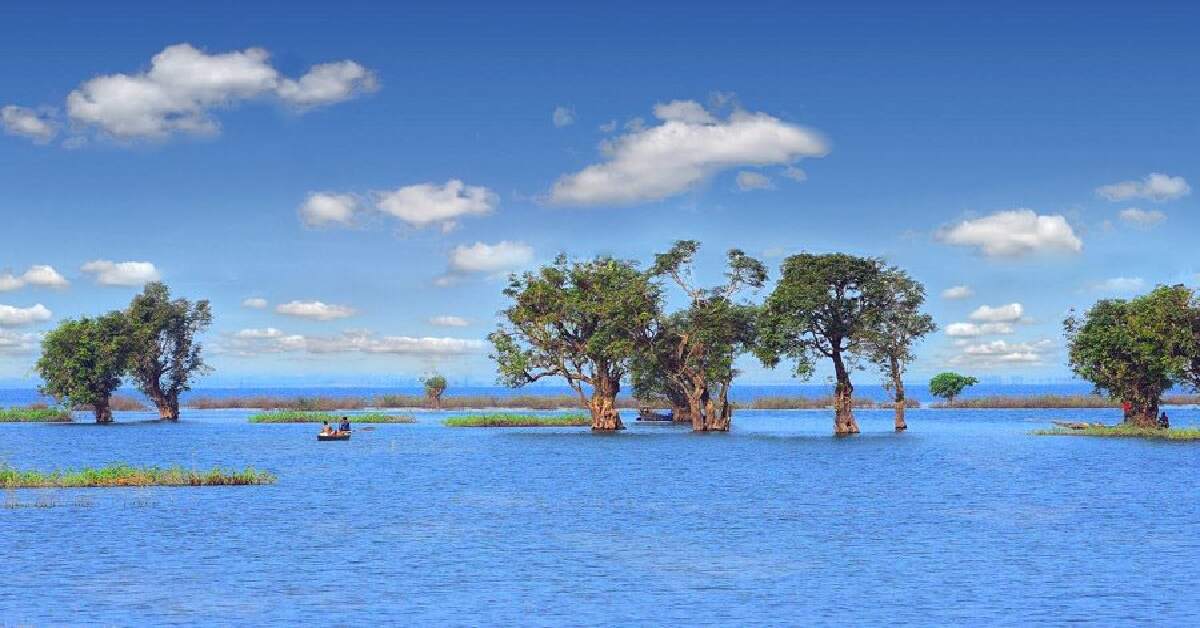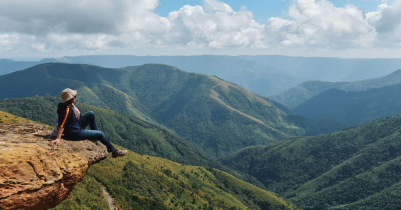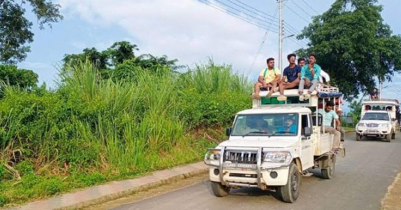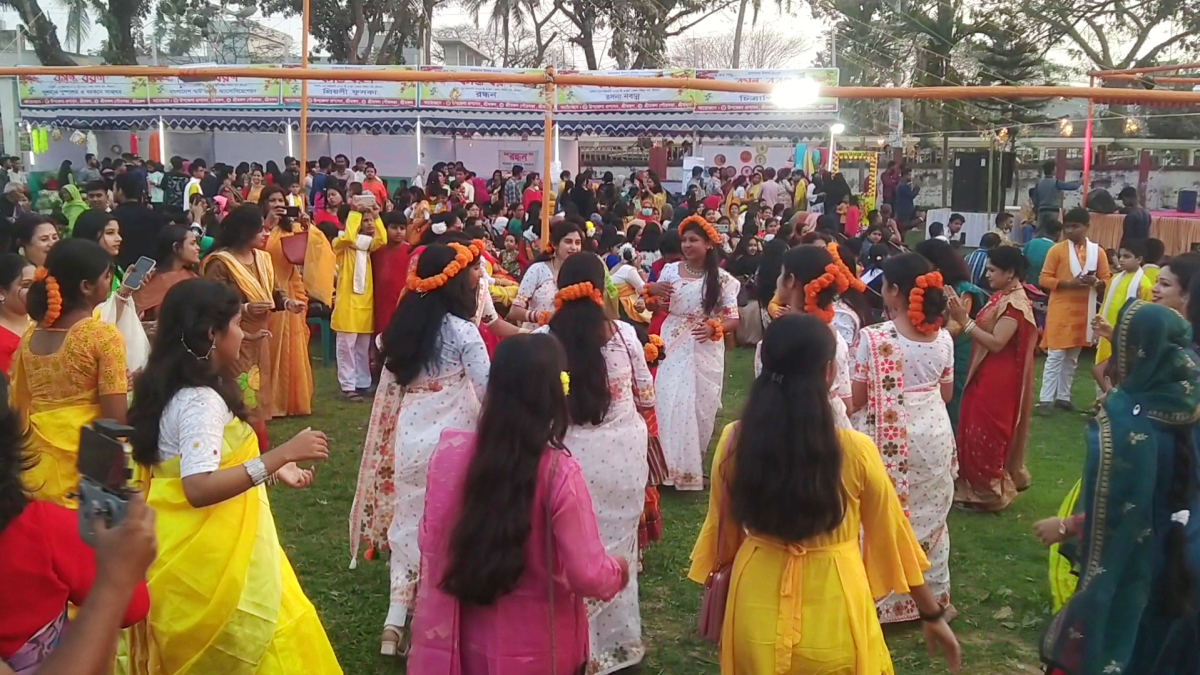Saifur Rahman Tuheen
Tanguar Haor : striking beauty of water and hills

Tanguar Haor at Sunamgonj district is a place where tideline amalgams with high green hills of Meghalaya. It is visited by almost 30 kinds of migratory wild ducks every year. You can easily hire a Dingi (small boat) from the local villages and enjoy the arresting natural beauty from there.
Located at the foothills of Meghalaya hills in India, the huge wetland always beckons tourists of home and abroad. It is really a fantastic place for birdwatchers.
Tourists of home and abroad also admit that Tanguar Haor is one of the best places in South Asia for enjoying sunrise and sunset. Another important information about Tanguar Haor that is a Ramsar site, a protected wetland for biodiversity.
We mainly go there for the bird survey, bird buzzing and research purposes ; but for local people this place is a natural fish tank. Also the flora of this area is unique and unbelievingly sundry. Tangua is a land that change shapes in different seasons based on the changes of water level. In the winter, one can enjoy natural beauty of many beels (wetland), small islands and reed beds.
For the bird camp, we usually set up tent underneath the tall Hijal and Koroch trees. But Tangua looks different in the rainy season, It becomes a massive water body like an endless see. It is difficult to park boats and all villages become isolated islands.
It has been said earlier that there are almost 30 kinds of migratory wild ducks stay in Tanguar Haor in winter. You can easily hire a Dingi (a kind of boat) and go near the large herds without disturbing them and enjoy the pleasant fluffy beauty who came all the way from China,
Mongolia or even Siberia. The wild duck count can reach up to even 1,00,000 in a single flock. Another very important winter resident of Tanguar Haor is the Pallas’s Fish Eagle. These birds are called as the king of this wetland. They are born there, learn how to fly and fish. In the rainy, they all fly to Mongolia or on the Himalayas and return here again in the winter and unusually use the same nest. This eagle in the flight is one of the magnificent natural sights in Bangladesh.
Going to Tanguar Haor was a very long journey at a time. It took nearly two days from Dhaka to reach Golabari village. But situation has been changed significantly due to construction of roads and bridges. It is possible to go to Tangua from Dhaka within half a day. You can hire Bojra (a local boat) and stay there. In winter, you have the opportunity to stay as paying guest at any house of nearby villages. You will see boats of large sizes full of tourists are going one part to another of Tanguar haor. Sometimes, especially after tourist’s departure, plastic water bottles and no recyclable packets of snakes can be seen sprinkled all around the place which is very disappointing.
Everybody should be retold of responsible tourism as Tanguar Haor is a very sensitive natural place. If you visit Tanguar Haor, please make sure to as little negative impact as possible and take good care of the place, only then it can sustain as a place of undying beauty for the next generations. Also poaching birds should be made illegal and strict monitoring should be enforced.
How to go : You can go directly to Sunamgonj by bus. Then you can hire a vehicle and go to Tahirpur even Solemanpur. Than you have to hire an engine boat for going Golabari or other villages. If you want to visit the well-known Shimul Bagan than your destination will be different and you have to make tour itinerary according to this.
Overnight stay : Some reliable tour operator companies are available in the rainy season and you can take their service. You can easily stay at ‘Bojra’ and other house boats. You have not to pay much if you go to Tanguar Haor by your own management. But your tour will be safer and more comfortable if you take help of a skilled and experienced tour operator and you will enjoy company of educated and smart tourist guide.
Writer : Freelance journalist and travel blogger
Read More
- The heavenly beauty of Bandarban
- Bandarban tour with my mother on Eid vacation
- 4 places to visit in Tangail
- Meghalaya: A domain Of Clouds and hills
- Explore Maldives with US-Bangla at low cost
- Nepali climber makes record 27th Everest summit
- Conquering thyself: A solo climb of Mount Pisang
- Tanguar Haor : striking beauty of water and hills
- Air travel tax may surge
- Bangladesh-India trains: BR increased the fares






























